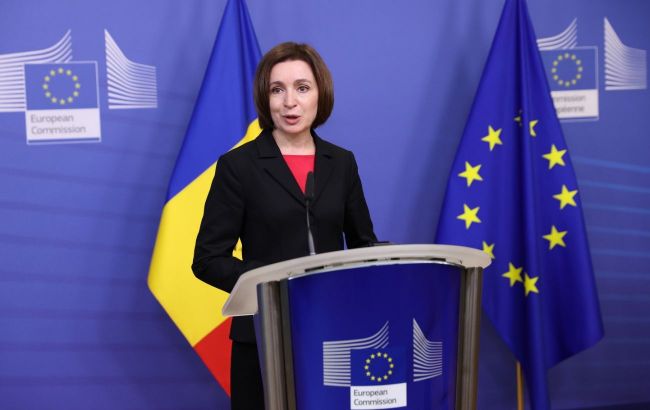Moldova’s pro-EU camp narrowly wins referendum
 Moldovan President Maia Sandu (Photo: Getty Images)
Moldovan President Maia Sandu (Photo: Getty Images)
A slim majority of 50.09% voted "yes" in Moldova’s referendum on joining the European Union. President Maia Sandu stated that the vote was marred by "unprecedented" foreign interference, according to Reuters.
The Moldovan Central Election Commission still has 1.5% of ballots to count, but they are not expected to alter the final result.
Such a modest outcome falls short of the decisive support for the pro-European path that President Maia Sandu has championed during her four-year tenure.
The presidential election, held simultaneously, gave Sandu 42% of the vote, while former Prosecutor General Alexandru Stoianoglo received 26%, setting the stage for a tense second-round runoff on November 3.
Both votes, which followed a series of accusations of election interference, have been seen as a test of Moldova's commitment to fully pursue European Union membership and break free from Moscow’s influence. Moldova began the long process of official EU accession talks in June, with Sandu setting a target to join the EU by 2030.
Stoianoglo stated that if he comes to power, he will pursue a "balanced" foreign policy, including ties with the EU, Russia, and the United States.
Sandu's statement
Early on October 21, Sandu addressed the people of Moldova, citing "clear evidence" that criminal groups, working in coordination with foreign forces hostile to Moldova's interests, attempted to buy 300,000 votes.
According to her, this was "fraud of an unprecedented scale."
"Their objective was to undermine a democratic process. Their intention was to spread fear and panic in society... We are waiting for the final results, and we will respond with firm decisions," she said.
When preliminary results were announced late on October 20, about 57% of Moldovan residents had said "no" in the referendum. As more votes from abroad and from the capital, Chișinău, were counted, the number of "yes" votes gradually increased, overtaking the opposition early on the morning of October 21.
Political analyst Valeriu Pașa noted that the "yes" vote only prevailed due to an unusually high turnout among the Moldovan diaspora, who live abroad and overwhelmingly support EU integration.

